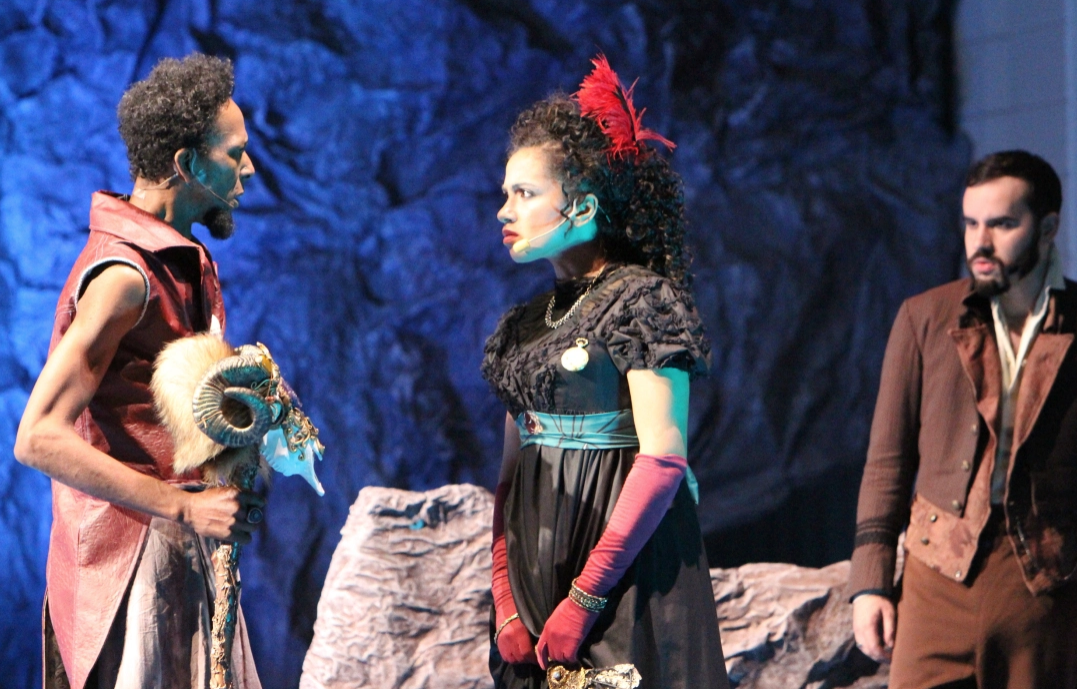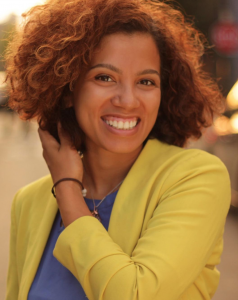

For Massachusetts-born Brooklynite Tanya Everett, being an actor, playwright, and Brooklyn College professor has enabled her to live her life’s purpose. However, her development into becoming the multidisciplinary creator she is today has spanned years of teachable moments, writing through a handful of “terrible plays,” and overcoming self-doubt.
“A lot of times, we can get out of alignment because we don’t sit and wait for our real purposes. Sometimes it takes a long time to figure that out, time just listening,” said Everett.
As a BC English Composition and Creative Writing professor, Everett continues her long-time vocation as a teacher. After graduating with an MA in playwriting from The Graduate Center at Brooklyn College in 2019, Everett intends to extend her knowledge of theater and writing to MA-seeking students of color. In recognizing this difference between the racial and ethnic diversity in undergraduate and graduate programs across colleges like BC, Everett aims to create a Master’s Program that is available to all artists of color.
“I want to teach other young writers to hone their craft and access themselves through their art. Eventually, I want to run my own Master’s Program in my fifties or sixties. I want to see how a program looks from the inside, and I want to see that especially people of color can have more access to it,” said Everett. “I see that a Master’s degree, even at Brooklyn College, is very marginalized. The undergrad seems to be so diverse, maybe seventy-five percent or something crazy, yet the graduate degree is very white.”
As a child, Everett demonstrated an innate knack for creative writing through her series of short stories. She was encouraged to hone her craft by her parents and teachers, but Everett’s nine-year-old self was set on becoming an actor after playing Pocahontas in a local children’s theatre show.
“The lights went on, I went on stage, and I had my lines, and then–I lost my line. I forgot my line. My scene partner picked up the scene, and he adlibs for a while,” recalls Everett. “Then we kept going, and I was like, ‘What is this magic and sorcery? What just happened?’ We did this thing in front of people, and it felt very magical.”
Eventually, throughout her years as an anthropology-major at Columbia University, Everett began delving into a new role: playwriting. Despite the criticism of her writing professors and overall competitiveness at Columbia, Everett continued to pursue her newfound interest. However, she admits that she did not recognize her talents until earning her fellowships at Labyrinth Company in 2011 and Wright Club in 2016.
“I think finally I got to a place where I could write plays and start to believe in myself as a playwright. It was a long journey. (…) I don’t love that you have to have accolades to believe you are something, but that’s what happened,” said Everett.
By gaining experience as both a playwright and an actor, Everett has found that “plays can be very issuey,” or be heavy-handed on political matters. Though Everett appreciates kitchen-sink dramas, a British cultural movement that adopts social realism to depict social and political controversies, she argues that these works tend to overshadow the minutiae and internal conflicts that exist in real-life. To Everett, character-driven “high stakes” plots are more interesting.
“Issues like the prison industrial complex are about how everything we do is related to commerce. A lot of what we do is based on human labor and forced labor,” said Everett. “But if we can think about that as a person, there’s a person behind the insoles of our sneakers, right? And if that person has a name, a first and last name, I think it is much more interesting to me than this issue-based drama that is removed from the people that it’s actually about.”
To underscore human experiences in her plays, Everett’s work titled “A Dead Black Man” comments on the degradation of the black male body through a series of vignettes. As a mixed-race woman, with a family history connected to Black America, Everett felt a need to create a piece that strips away America’s projections against black men. The play, which led Everett to become a finalist for the Dramatists Guild of America and a fellow at Playwright’s Realm, explores who black men can be without discriminatory labels.
“I have black men in my family, and I have deep friendships and deep love for black men. Writing this play became a love letter to them. All how we don’t see them, all how love is complicated with them, all how we project upon them a series of things that have nothing to do with them,” said Everett. “Loving them looks like giving them more space and giving them more freedom. Showing them that they matter, that they are valuable–not in a ‘protesty’ way, but in a ‘be yourself’ way.”
Through her versatility, Everett has demonstrated her dedication in fulfilling her real purpose: serving others through her own creativity and guidance. No matter what task or responsibility this emerging playwright and actor must take on to achieve her aim, she will persevere.
“If writing is what gives people jobs, and creates opportunities through me, then I’ll write. If I have the opportunity to act, and acting is of service, then I’ll do that,” said Everett. “If one day I find social work is a new purpose, then I will do it.”
